
Papeete: The Heartbeat of French Polynesia
Papeete, the bustling capital of French Polynesia, is a vibrant city that serves as the gateway to the enchanting islands of Tahiti. Nestled between lush mountains and the sparkling waters of the South Pacific, Papeete is a perfect blend of urban energy and natural beauty. The city's waterfront is a lively hub, with colorful markets, street vendors, and an array of cafes and restaurants where you can savor local delicacies. Take a leisurely stroll through the Marché de Papeete, the central market, to experience the rich culture and daily life of Tahitians. Here, you will find an array of fresh produce, tropical flowers, handmade crafts, and aromatic vanilla. For history enthusiasts, a visit to the Musée de la Perle is a must, where you can learn about the fascinating history of Tahitian black pearls. Papeete also boasts a vibrant nightlife, with many bars and clubs offering live music and dance. The annual Heiva festival, held in July, is a spectacular showcase of Polynesian culture, featuring traditional dances, music, and sports. Whether you're exploring the city's botanical gardens, enjoying a sunset cruise, or simply relaxing on the beach, Papeete offers a unique and unforgettable experience.
Local tips in Papeete
- Visit the Marché de Papeete early in the morning to get the freshest produce and best selection of crafts.
- Wear comfortable shoes for exploring the city's waterfront and markets.
- Try the local dish, Poisson Cru, a Polynesian take on ceviche made with raw fish and coconut milk.
- Use local buses or rent a scooter for more economical transportation around the city.
- Check out the Heiva festival in July for an immersive cultural experience.
Papeete: The Heartbeat of French Polynesia
Papeete, the bustling capital of French Polynesia, is a vibrant city that serves as the gateway to the enchanting islands of Tahiti. Nestled between lush mountains and the sparkling waters of the South Pacific, Papeete is a perfect blend of urban energy and natural beauty. The city's waterfront is a lively hub, with colorful markets, street vendors, and an array of cafes and restaurants where you can savor local delicacies. Take a leisurely stroll through the Marché de Papeete, the central market, to experience the rich culture and daily life of Tahitians. Here, you will find an array of fresh produce, tropical flowers, handmade crafts, and aromatic vanilla. For history enthusiasts, a visit to the Musée de la Perle is a must, where you can learn about the fascinating history of Tahitian black pearls. Papeete also boasts a vibrant nightlife, with many bars and clubs offering live music and dance. The annual Heiva festival, held in July, is a spectacular showcase of Polynesian culture, featuring traditional dances, music, and sports. Whether you're exploring the city's botanical gardens, enjoying a sunset cruise, or simply relaxing on the beach, Papeete offers a unique and unforgettable experience.
When is the best time to go to Papeete?
Iconic landmarks you can’t miss
Papeete Market
Experience the vibrant culture and flavors of Tahiti at Papeete Market, a bustling hub of local crafts and delicious cuisine.
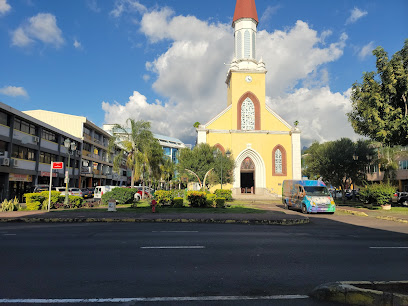
Les 3 Brasseurs
Discover the vibrant atmosphere of Les 3 Brasseurs, Papeete's premier sports bar offering delicious food, craft beers, and live sports action.
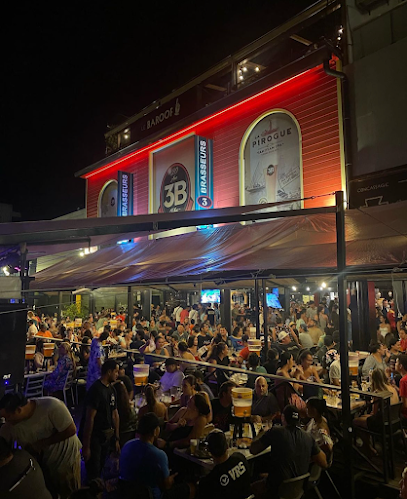
Place Vai'ete
Discover the beauty and tranquility of Place Vai'ete, a picturesque park in Papeete, French Polynesia, perfect for relaxation and cultural experiences.
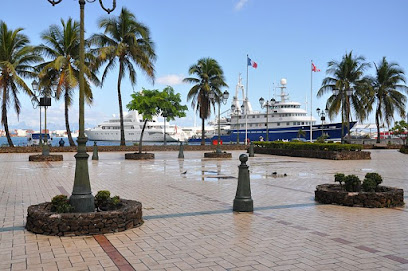
Pā'ōfa'i Gardens
Explore the lush landscapes and cultural treasures at Pā'ifa'i Gardens, a serene escape in Papeete, French Polynesia.
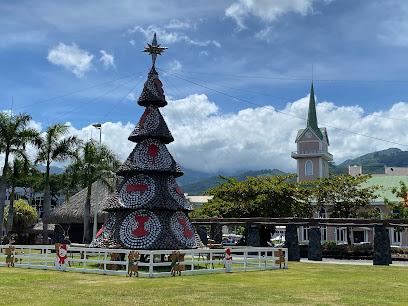
Le Retro
Savor the rich flavors of French Polynesia at Le Retro, a charming brasserie in the heart of Papeete, offering an unforgettable culinary experience.
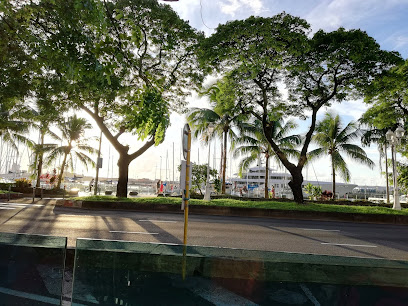
Aremiti
Discover French Polynesia with Aremiti, your reliable transportation service in Papeete, connecting you to breathtaking islands and unforgettable adventures.
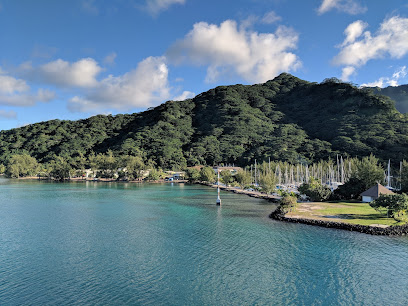
L'O A La Bouche
Experience the authentic tastes of French Polynesia at L'O A La Bouche, a culinary gem in the heart of Papeete, offering a vibrant atmosphere and exquisite local dishes.
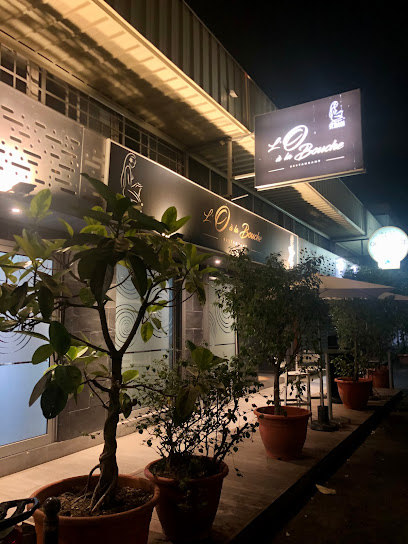
Mana'o Tattoo Studio
Experience the essence of Tahiti through art at Mana'o Tattoo Studio, where skilled artists create unforgettable tattoos that tell your story.
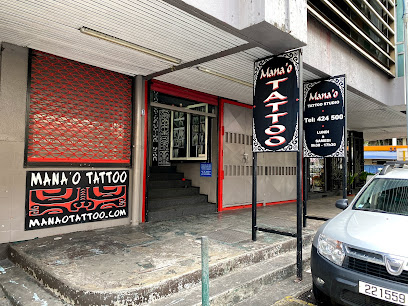
Musée de la Perle Robert Wan
Explore the exquisite world of Tahitian pearls at Musée de la Perle Robert Wan, where culture and craftsmanship meet in a breathtaking setting.
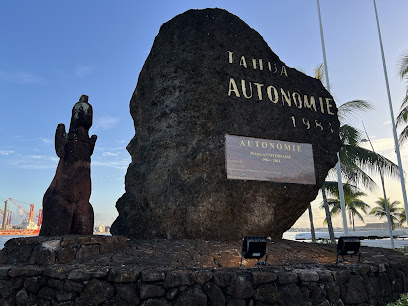
POE CHARTER TAHITI
Experience the breathtaking beauty of Tahiti's waters with POE CHARTER TAHITI, offering unforgettable boat tours and rentals in French Polynesia.
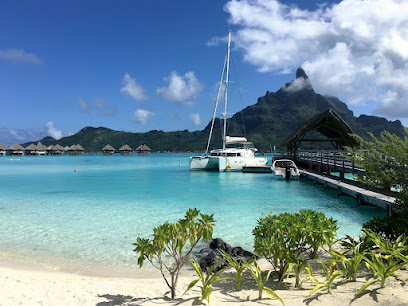
Papeete Catholic Cathedral
Discover the Papeete Catholic Cathedral, an architectural masterpiece and spiritual sanctuary in the heart of French Polynesia's vibrant capital.
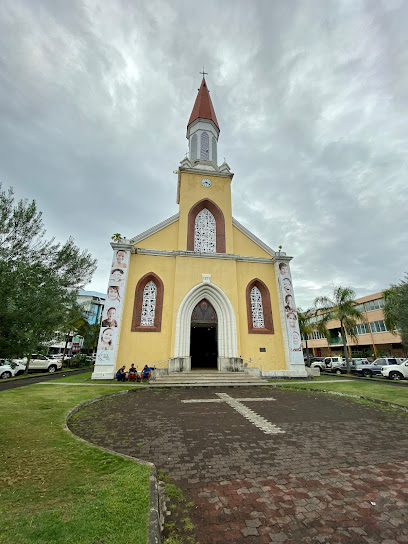
Le Sully
Experience the vibrant flavors of French Polynesia at Le Sully, a culinary gem in Papeete, blending local ingredients with French flair.
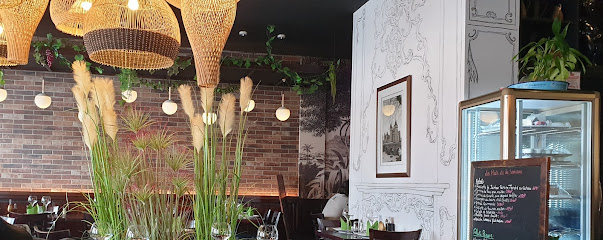
Meherio Tahitian Bistro
Discover the authentic tastes of Tahiti at Meherio Tahitian Bistro, offering fresh seafood and traditional flavors in the heart of Papeete.
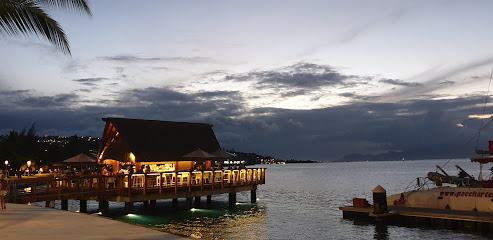
Unique Tahiti
Explore the breathtaking beauty and vibrant culture of Tahiti with Unique Tahiti's unforgettable sightseeing tours and outdoor adventures.
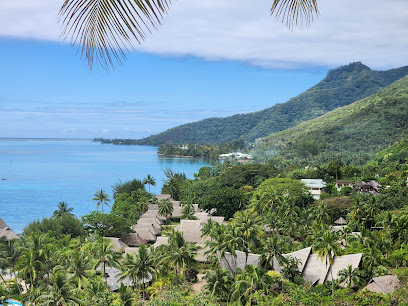
Terevau
Experience the breathtaking beauty of French Polynesia with Terevau, your essential ferry service connecting you to paradise.
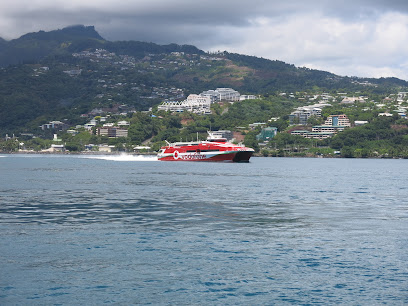
Unmissable attractions to see
Belvedere Lookout
Experience Moorea's breathtaking beauty from Belvedere Lookout: panoramic views, lush landscapes, and ancient Polynesian history await!
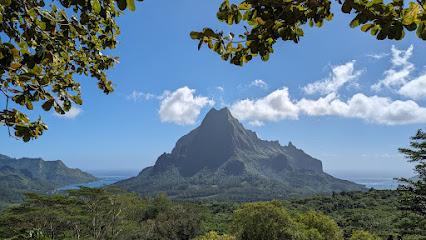
Tiki Village
Experience Polynesian culture firsthand at Tiki Village in Moorea, with traditional crafts, cuisine, and captivating dance performances.
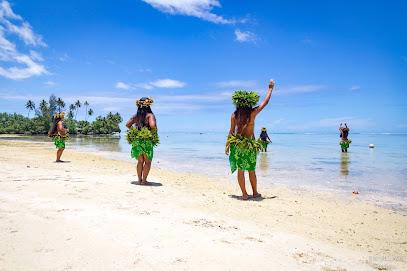
Water Gardens Vaipahi
Explore Tahiti's Water Gardens Vaipahi: A blend of Polynesian history, botanical beauty, and tranquil waterfalls in a sacred, serene setting.
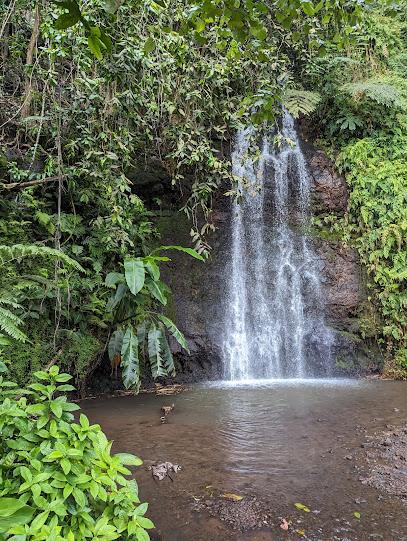
Arahoho Blowhole
Witness nature's power at Arahoho Blowhole in Tahiti, where crashing waves create spectacular geysers on a stunning volcanic coastline.
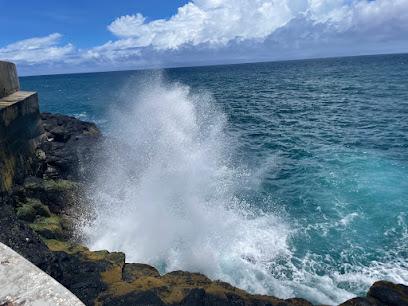
Fa'aruma'i Waterfalls
Discover the breathtaking beauty of Tahiti's Fa'aruma'i Waterfalls, a trio of majestic cascades surrounded by lush, tropical scenery.
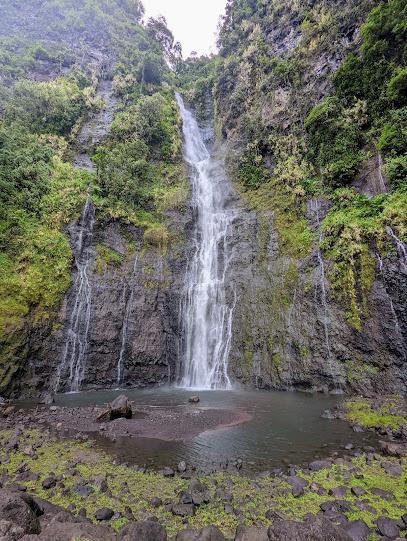
Public Beach Ta'ahiamanu
Discover Moorea's beautiful Ta'ahiamanu Beach: a perfect spot for swimming, snorkeling, and relaxation amidst stunning scenery.
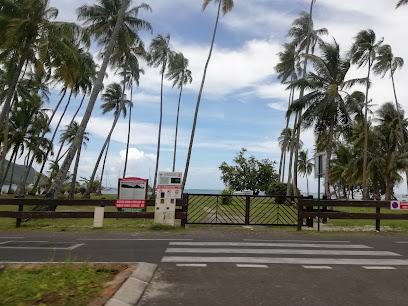
Manutea Tahiti - Rotui Juice Factory & Distillery
Experience the flavors of Moorea: tour the distillery, sample local juices and rums, and discover Polynesian traditions.
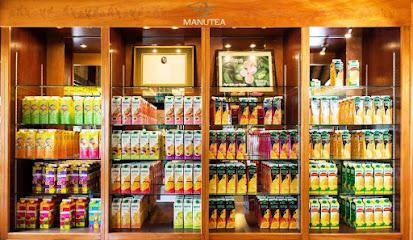
Museum of Tahiti and The Islands
Discover Polynesian history, culture, and natural wonders at Tahiti's national museum. Explore artifacts, art, and traditions in a beautiful waterfront setting.

Pā'ōfa'i Gardens
Escape to Papeete's tranquil Pā'ōfa'i Gardens: a waterfront haven of lush greenery, cultural charm, and serene relaxation in the heart of Tahiti.
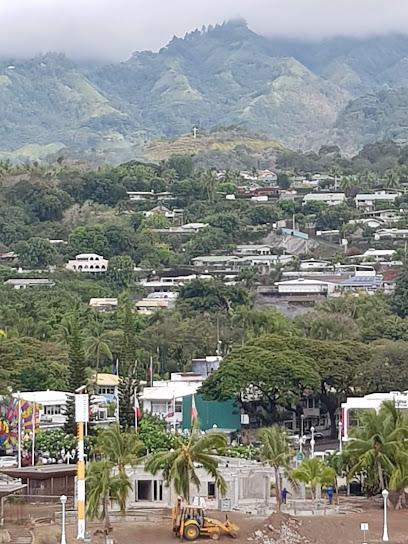
Top Jet & Top Quad Moorea (jet ski, QUAD/ATV, baleines/whales, tour bateau, private boat tours)
Experience Moorea's beauty with thrilling jet ski and quad tours. Explore the lagoon and lush landscapes with a passionate, professional team.
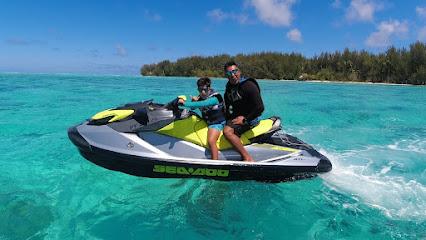
Grottes De Mara'a
Discover the Grottes de Mara'a in Tahiti: a natural wonder featuring stunning caves, clear pools, and a rich cultural history.
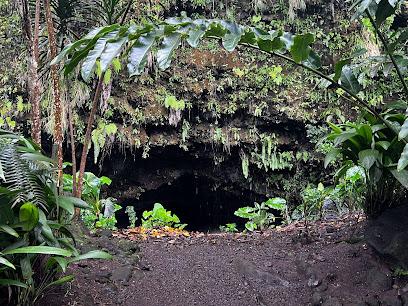
Tropical Garden
Discover Moorea's flavors at this idyllic garden estate with panoramic views, offering homemade jams, local fruits, and Polynesian lunches.
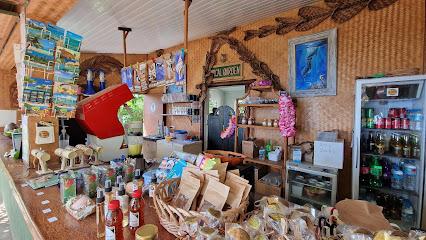
Magic Mountain Overlook
Experience breathtaking panoramic views at Magic Mountain Overlook, a must-see scenic spot in Papeete, French Polynesia, perfect for nature lovers.
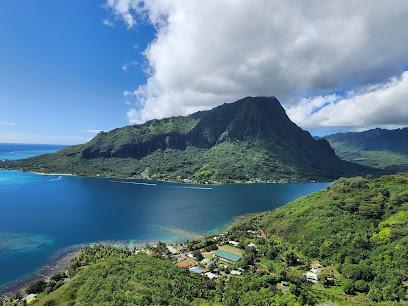
Toatea Lookout
Experience breathtaking panoramic views of Moorea's stunning lagoon, lush mountains, and the distant island of Tahiti from Toatea Lookout.
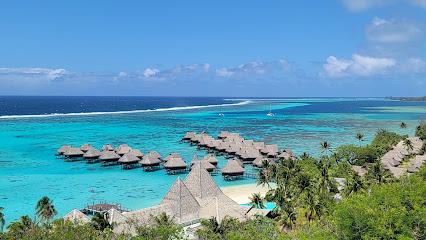
Enjoy Boat Tours Moorea
Discover Moorea's breathtaking lagoon with local experts: snorkeling, marine life encounters, and Polynesian culture await!
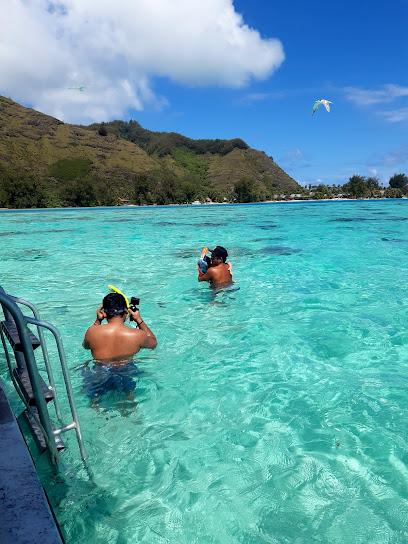
Essential places to dine
Le Retro
Experience delightful French cuisine at Le Retro in Papeete - where tradition meets taste in an inviting atmosphere.
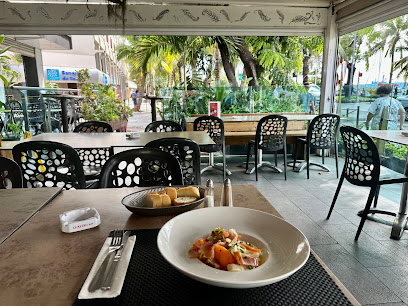
Restaurant Le Moana
Experience authentic Polynesian flavors at Restaurant Le Moana in Papeete – where every dish tells a story.
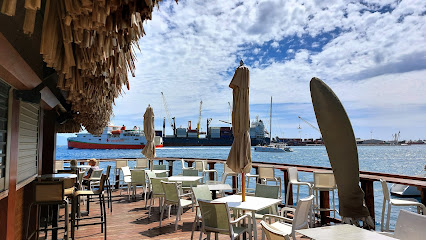
L'O A La Bouche
Experience the exquisite fusion of local flavors at L'O A La Bouche in Papeete, where every dish tells a story.
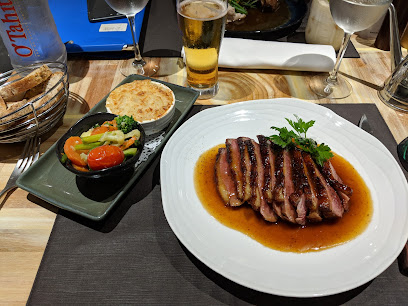
Le Soufflé
Experience authentic French cuisine at Le Soufflé in Papeete - savor exquisite soufflés and gourmet dishes in a charming atmosphere.
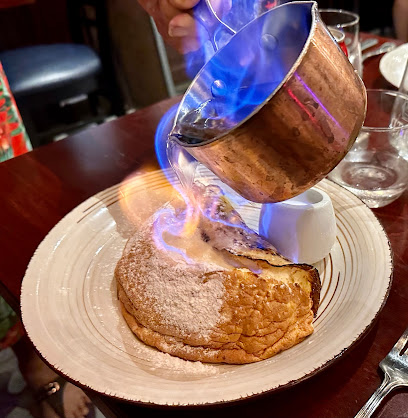
Le RAINA
Experience authentic Polynesian cuisine at Le RAINA in Papeete - where every dish tells a story.
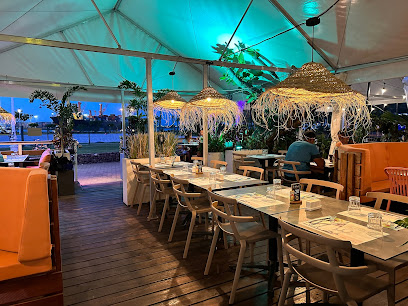
Le Sully
Experience authentic French Polynesian cuisine at Le Sully in Papeete – a culinary haven blending tradition with tropical flavors.
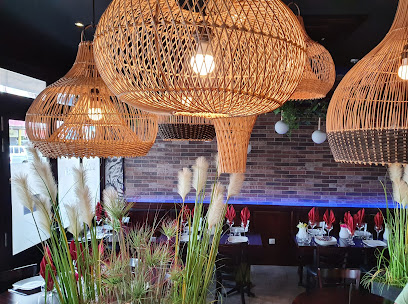
Café Maeva du marché de Papeete
Discover authentic Tahitian cuisine at Café Maeva du Marché de Papeete – where flavors meet vibrant market life in French Polynesia.
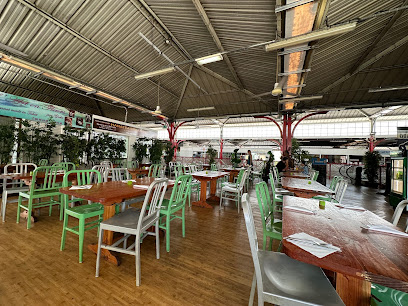
Meherio Tahitian Bistro
Discover authentic Tahitian cuisine at Meherio Tahitian Bistro in Papeete - A culinary gem celebrating French Polynesian flavors.
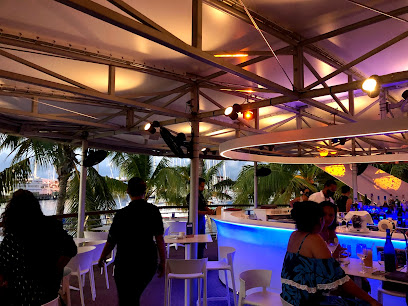
Lou Pescadou
Experience authentic Italian flavors at Lou Pescadou in Papeete – where delicious pizza meets tropical paradise.
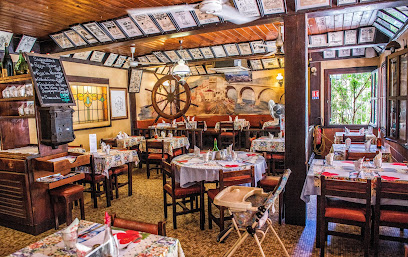
Lapizzeria
Experience authentic Italian flavors at Lapizzeria in Papeete - where every meal is crafted with love amidst stunning Tahitian scenery.
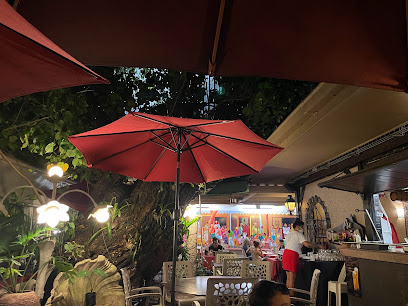
Brasserie des Remparts Tahiti
Experience exquisite dining at Brasserie des Remparts in Papeete - where local flavors meet vibrant atmosphere for an unforgettable meal.
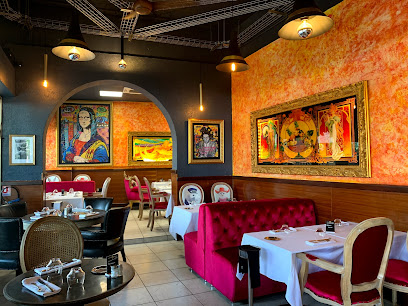
Cali.stro
Experience culinary excellence at Cali.stro, where premium steaks meet local flavors in the heart of Papeete.
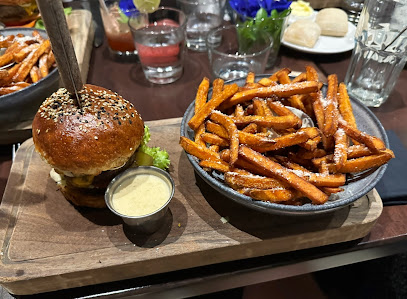
Restaurant Jimmy
Experience authentic Asian cuisine at Restaurant Jimmy in Papeete – a must-visit destination for culinary enthusiasts.
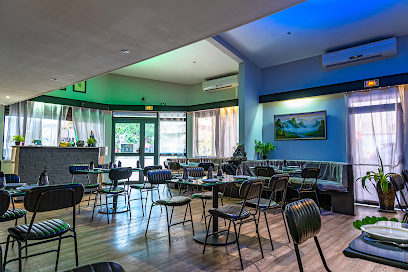
Maru Maru
Discover the flavors of French Polynesia at Maru Maru – where culinary excellence meets island charm in Papeete.
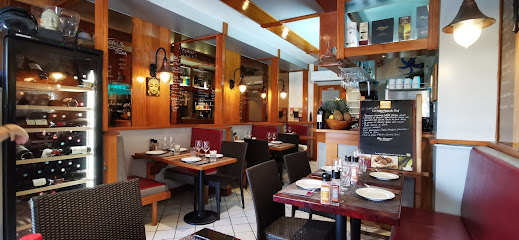
Le Grillardin
Experience exquisite French Polynesian cuisine at Le Grillardin - where local flavors meet culinary excellence in Papeete.
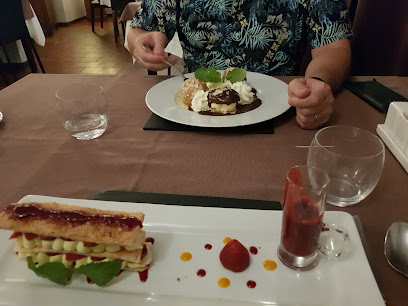
Markets, malls and hidden boutiques
Vaima Shopping Center
Experience the vibrant shopping, dining, and entertainment at Vaima Shopping Center in Papeete, the perfect destination for tourists.
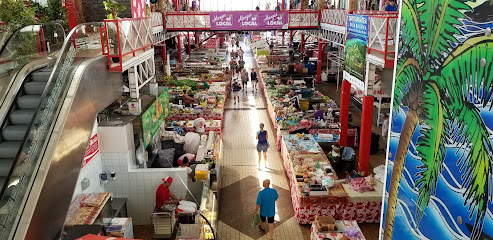
Tahiti Pearl Market
Explore the Tahiti Pearl Market for exquisite Tahitian pearls and handcrafted jewelry that embodies the beauty of French Polynesia.
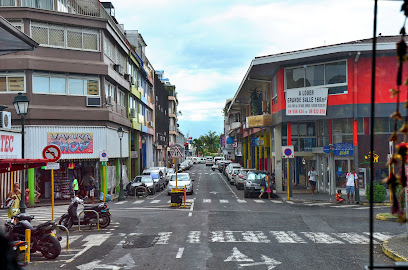
ART'GRICULTURE Tahiti
Discover the heart of Tahitian culture at ART'GRICULTURE Tahiti, where art, coffee, and local crafts converge in a vibrant shopping experience.
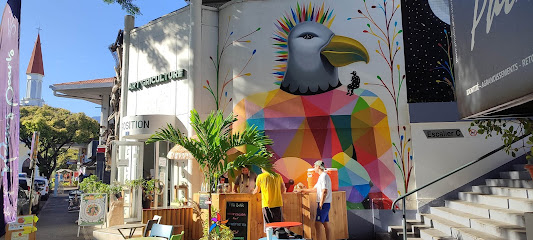
Love Yourself
Experience the vibrant fashion of French Polynesia at Love Yourself, a unique clothing store in the heart of Papeete.
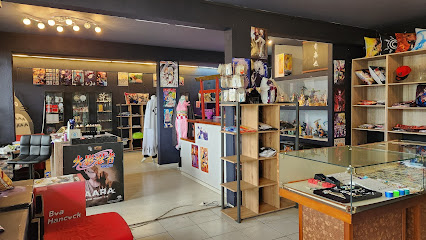
Natural Shop Tahiti
Discover the best of organic health and beauty at Natural Shop Tahiti, your go-to destination for wellness in Papeete.
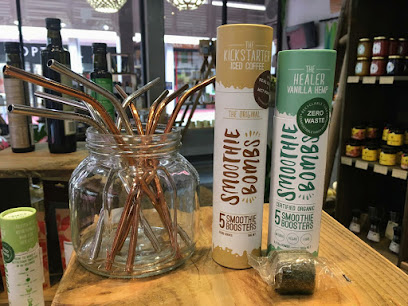
Aloha
Discover the heart of French Polynesia at Aloha, a boutique offering unique local crafts, jewelry, and souvenirs in Papeete.
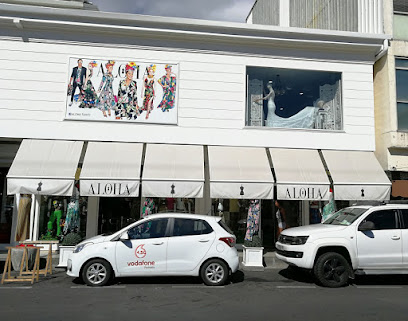
Enjoy Life Tahiti
Explore Enjoy Life Tahiti for unique local clothing that captures the essence of Polynesian culture and style, perfect for your island getaway.
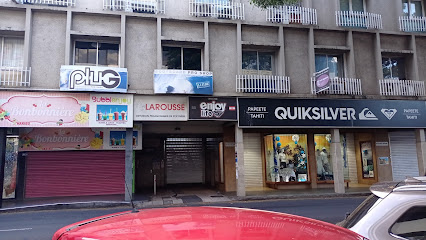
Boutique Import H&V
Explore the vibrant styles of French Polynesia at Boutique Import H&V, a must-visit clothing store in Pape'ete for unique fashion finds.
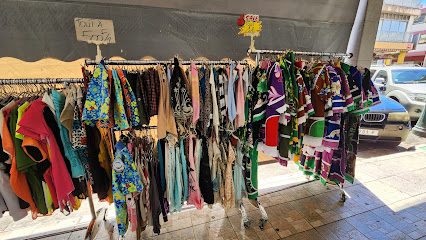
TAAPUNA TAHITI
Discover unique Tahitian fashion at Taapuna Tahiti, where vibrant styles meet local craftsmanship in the heart of Papeete.
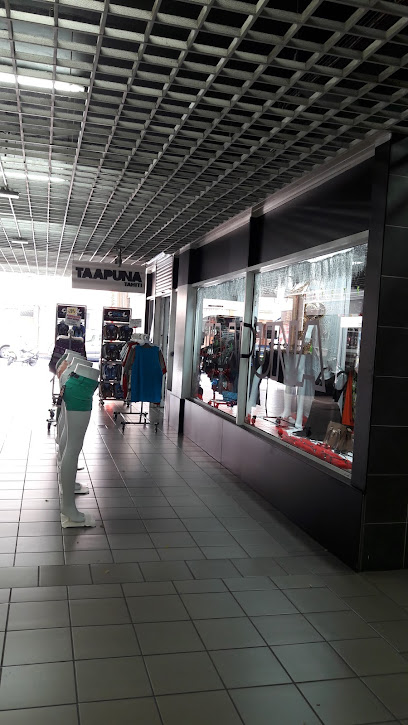
Store Bébé9 Tahiti
Explore Bébé9 Tahiti for stylish baby clothing and essential items, blending quality with the charm of Tahiti in the heart of Papeete.
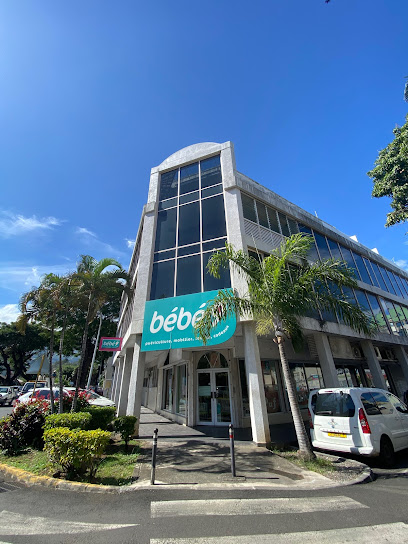
BOUTIQUE TARAVANA TAHITI
Discover the essence of Tahitian fashion at Boutique Taravana, where local craftsmanship meets vibrant island culture.

BATIK TAHITI
Explore Batik Tahiti in Papeete for unique clothing and home decor that captures the essence of Polynesian culture.
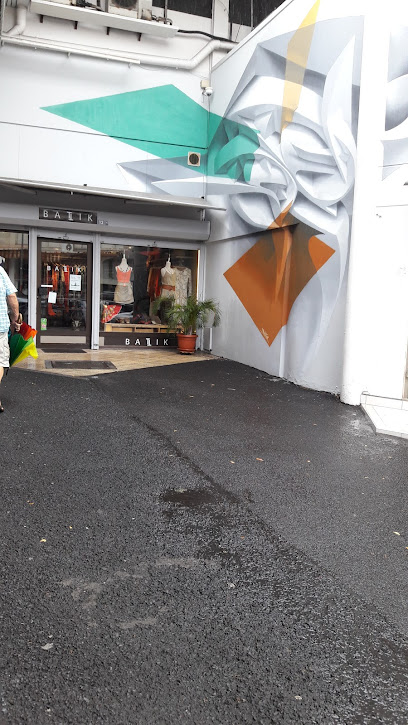
TAHITI CANDLES
Discover the enchanting fragrances and handmade candles at Tahiti Candles, a unique gift shop in the heart of Papeete, French Polynesia.
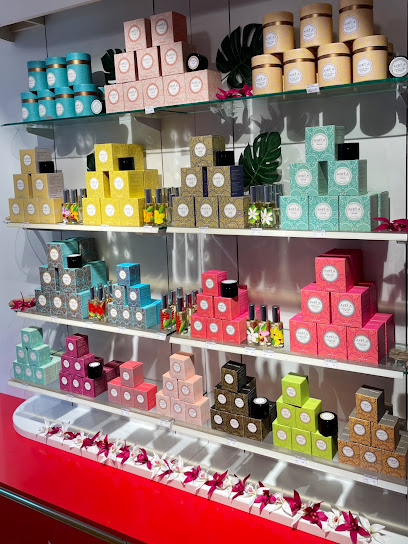
Tahiti Box
Explore authentic Polynesian crafts and souvenirs at Tahiti Box in the heart of Papeete, a must-visit for any traveler seeking unique treasures.
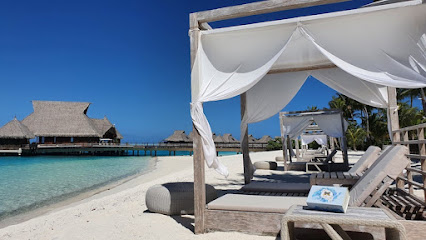
boutique Tahiti porinetia
Discover unique T-shirts capturing the spirit of Tahiti at Boutique Tahiti Porinetia, your go-to store in Papeete for authentic island vibes.

Essential bars & hidden hideouts
Les 3 Brasseurs
Discover the vibrant spirit of Papeete at Les 3 Brasseurs, a sports bar with homemade brews and a lively atmosphere perfect for unwinding.
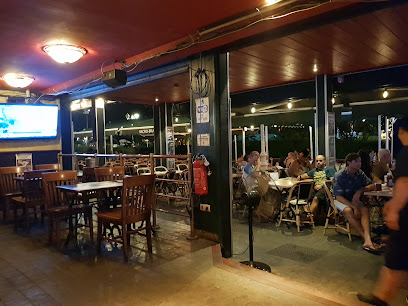
Bora Bora lounge
Experience the vibrant atmosphere and tropical flavors at Bora Bora Lounge, your perfect retreat in Papeete, French Polynesia.
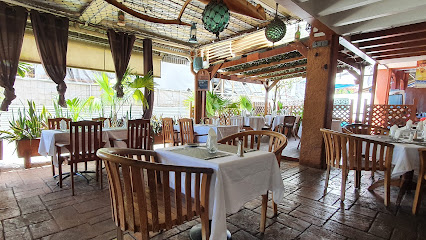
Le BAROOF
Experience the vibrant fusion of French cuisine and nightlife at Le BAROOF in Papeete, where every meal is a celebration of flavor and fun.
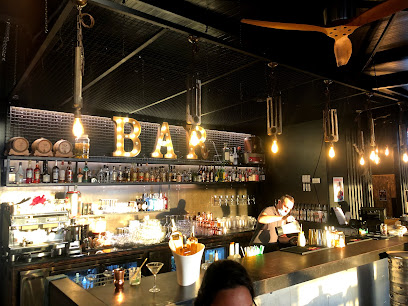
Brasserie Hoa
Discover the vibrant flavors of French Polynesia at Brasserie Hoa, a premier brewery and bar in the heart of Papeete, offering exceptional craft beers and local cuisine.
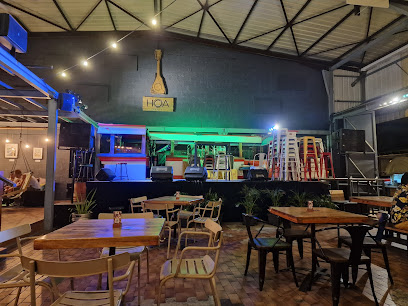
Wonderland
Experience the perfect blend of flavors and fun at Wonderland, Papeete's ultimate destination for food and board game enthusiasts.
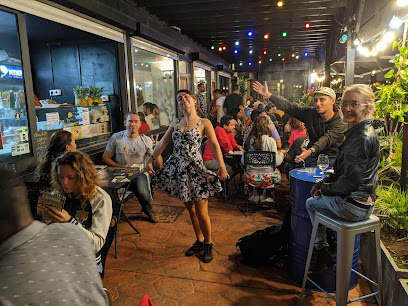
L'ivresse Tahiti
Discover the enchanting L'ivresse Tahiti, a premier wine bar in Papeete offering a diverse selection of wines and a relaxing atmosphere for all wine lovers.
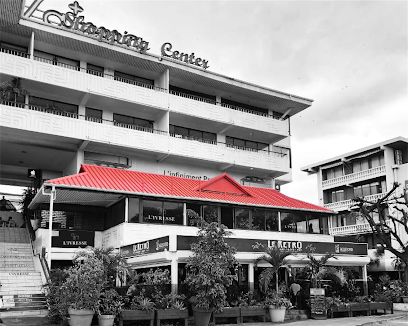
REEFTOP - 360° lounge & bar
Experience breathtaking views, tropical cocktails, and a vibrant atmosphere at Reeftop - the ultimate lounge and bar in Papeete, French Polynesia.
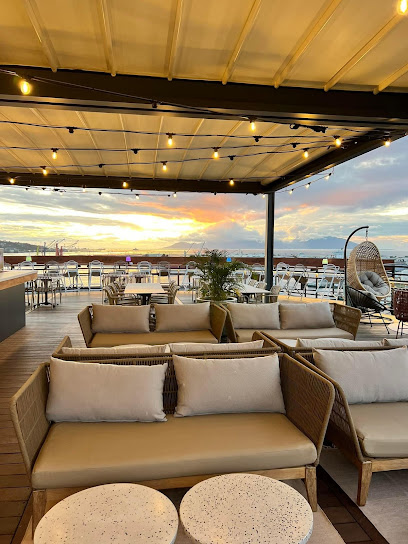
Le Corto
Discover Le Corto in Papeete, a vibrant bar offering tropical drinks, stunning views, and a lively atmosphere perfect for unwinding in French Polynesia.
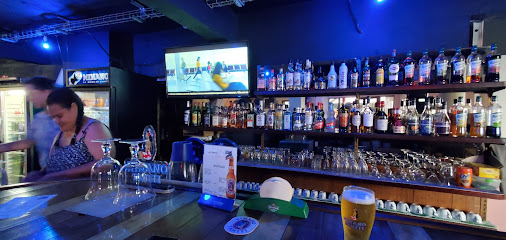
Le Ute Ute
Experience the vibrant nightlife of Papeete at Le Ute Ute, where lively atmosphere meets delicious drinks in the heart of French Polynesia.
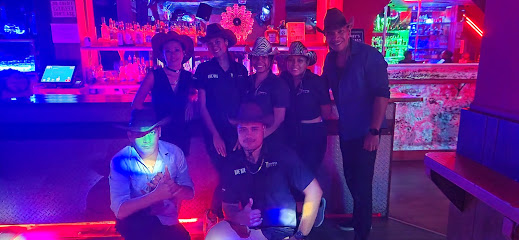
L'After
Experience the vibrant nightlife at L'After, a chic lounge and bar in Papeete, where delicious cocktails meet tropical charm.
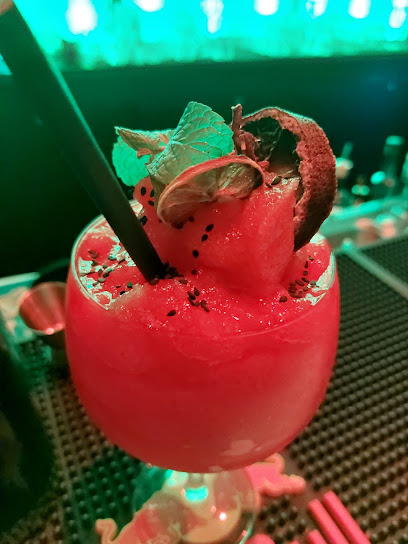
Be You
Discover the vibrant nightlife of Papeete at Be You, a bar that offers tropical drinks and an inviting atmosphere perfect for relaxation.
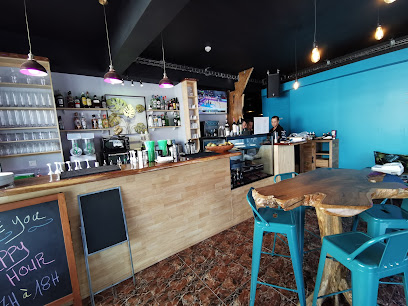
THE AVENUE TAHITI
Experience the vibrant atmosphere and exquisite cocktails at The Avenue Tahiti, a must-visit bar in Papeete that captures the essence of Polynesian charm.
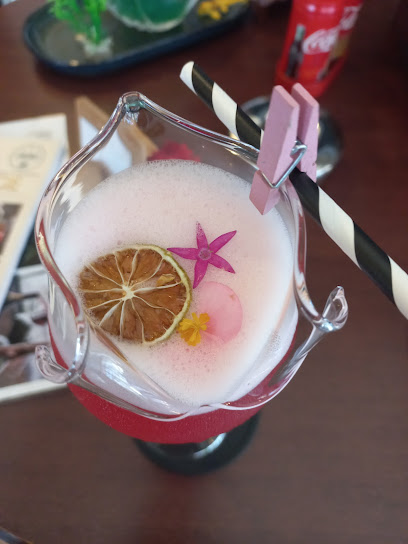
Lux Tahiti
Experience the vibrant nightlife of Papeete at Lux Tahiti, where exquisite drinks and local culture blend into an unforgettable evening.
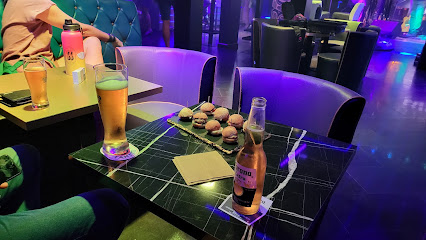
Le Chaplin's
Experience the vibrant nightlife of Papeete at Le Chaplin's, a bar offering delicious cocktails and a taste of local culture.
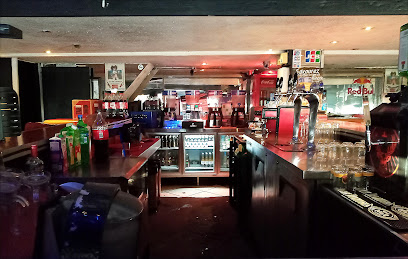
Local Phrases
-
- HelloBonjour
[bon-zhoor] - GoodbyeAu revoir
[oh ruh-vwahr] - YesOui
[wee] - NoNon
[noh] - Please/You're welcomeS'il vous plaît/De rien
[seel voo pleh/duh ryen] - Thank youMerci
[mehr-see] - Excuse me/SorryExcusez-moi/Désolé
[ex-kew-zay mwah/deh-zoh-lay] - How are you?Comment ça va?
[koh-moh sah vah] - Fine. And you?Bien. Et toi?
[byen. ay twah] - Do you speak English?Parlez-vous anglais?
[par-lay voo ahn-glay] - I don't understandJe ne comprends pas
[zhuh nuh kohm-prahnd pah]
- HelloBonjour
-
- I'd like to see the menu, pleaseJe voudrais voir le menu, s'il vous plaît
[zhuh voo-dray vwahr luh men-yoo, seel voo pleh] - I don't eat meatJe ne mange pas de viande
[zhuh nuh mahnj pah duh vyand] - Cheers!Santé!
[sahn-tay] - I would like to pay, pleaseJe voudrais payer, s'il vous plaît
[zhuh voo-dray pay-yay, seel voo pleh]
- I'd like to see the menu, pleaseJe voudrais voir le menu, s'il vous plaît
-
- Help!Au secours!
[oh seh-coor] - Go away!Allez-vous en!
[ah-lay voo zahn] - Call the Police!Appelez la police!
[ah-pay-lay lah poh-lees] - Call a doctor!Appelez un médecin!
[ah-pay-lay uh may-dsahn] - I'm lostJe suis perdu
[zhuh swee pair-doo] - I'm illJe suis malade
[zhuh swee mah-lahd]
- Help!Au secours!
-
- I'd like to buy...Je voudrais acheter...
[zhuh voo-dray zah-shay...] - I'm just lookingJe regarde juste
[zhuh ruh-gard zhuhst] - How much is it?Combien ça coûte?
[kohm-byen sah koot] - That's too expensiveC'est trop cher
[say troh shair] - Can you lower the price?Pouvez-vous baisser le prix?
[poo-veh voo bay-say luh pree]
- I'd like to buy...Je voudrais acheter...
-
- What time is it?Quelle heure est-il?
[kell ur ay teel] - It's one o'clockIl est une heure
[eel ay oon ur] - Half past (10)Dix heures et demie
[dees ur ay duh-mee] - MorningMatin
[mah-tan] - AfternoonAprès-midi
[ah-pray-mee-dee] - EveningSoir
[swah] - YesterdayHier
[ee-ehr] - TodayAujourd'hui
[oh-zhoor-dwee] - TomorrowDemain
[duh-man] - 1Un
[uhn] - 2Deux
[duh] - 3Trois
[twah] - 4Quatre
[kat] - 5Cinq
[sank] - 6Six
[sees] - 7Sept
[set] - 8Huit
[weet] - 9Neuf
[nuhf] - 10Dix
[dees]
- What time is it?Quelle heure est-il?
-
- Where's a/the...?Où se trouve...?
[oo suh troov] - What's the address?Quelle est l'adresse?
[kell ay lah-dress] - Can you show me (on the map)?Pouvez-vous me montrer (sur la carte)?
[poo-veh voo muh mohn-tray (soor lah kart)] - When's the next (bus)?Quand est le prochain (bus)?
[kand ay luh pro-shahn (boos)] - A ticket (to ....)Un billet (pour ...)
[uhn bee-yay (poor ...)]
- Where's a/the...?Où se trouve...?
History of Papeete
-
Papeete, located on the island of Tahiti, has a long history that dates back to the early Polynesian settlers who arrived around 1000 AD. These settlers navigated the vast Pacific Ocean using sophisticated boats and celestial navigation techniques, establishing a thriving community with a rich culture and social hierarchy.
-
The late 18th century marked the arrival of European explorers, most notably Captain James Cook, who visited Tahiti in 1769. The subsequent arrival of missionaries in the early 19th century brought significant changes to Papeete's cultural landscape, as they introduced Christianity and Western customs, impacting traditional Polynesian ways of life.
-
In 1842, France declared a protectorate over Tahiti and its dependencies. Papeete was chosen as the administrative center and capital due to its strategic location and natural harbor. This period saw the construction of key infrastructure, including government buildings and the port, solidifying Papeete's role as the heart of French Polynesia.
-
World War II had a significant impact on Papeete and French Polynesia. In 1942, the islands were used as a base for Allied forces in the Pacific theater. The war effort led to increased economic activity and the development of infrastructure, but also brought challenges such as resource shortages and the presence of military personnel.
-
Following World War II, Papeete underwent rapid modernization. The 1960s and 1970s were particularly transformative, with the construction of new roads, schools, and healthcare facilities. This period also saw an influx of immigrants, contributing to the city's growing diversity and vibrant cultural scene.
-
In recent decades, there has been a resurgence of interest in traditional Polynesian culture in Papeete. Efforts to preserve and promote Tahitian language, dance, and crafts have gained momentum, leading to a cultural renaissance. Festivals such as Heiva i Tahiti celebrate this rich heritage, drawing visitors from around the world.
-
Today, Papeete is a bustling metropolis that blends traditional Polynesian culture with modern amenities. It serves as the economic, political, and cultural hub of French Polynesia, with a thriving tourism industry, vibrant markets, and a lively waterfront. The city's unique mix of influences makes it a fascinating destination for travelers seeking both history and adventure.
Papeete Essentials
-
Papeete, the capital of French Polynesia, is located on the island of Tahiti. The primary gateway to Papeete is Faa'a International Airport (PPT), which is about 5 km from the city center. There are direct flights to Papeete from major cities such as Los Angeles, Tokyo, Auckland, and Paris. Once you land at Faa'a International Airport, you can take a taxi, shuttle, or rental car to reach your accommodation in Papeete.
-
Papeete has a variety of transportation options. Taxis are widely available, and you can also rent cars, scooters, or bicycles. For budget-friendly travel, consider using the local bus system, known as 'Le Truck' or the newer 'Cars Transit' buses. Ferries and boats are available for inter-island travel. Walking is also a pleasant way to explore the city, especially along the waterfront.
-
The official currency of French Polynesia is the CFP Franc (XPF). Credit cards are widely accepted in hotels, restaurants, and larger shops. However, it is advisable to carry some cash, especially when visiting markets or smaller establishments. ATMs are available throughout Papeete, and currency exchange services can be found at the airport and in the city.
-
Papeete is generally a safe destination, but it is important to take standard precautions. Avoid walking alone at night in poorly lit areas and keep an eye on your belongings in crowded places like markets. While violent crime is rare, petty theft can occur. Areas such as the waterfront and the marketplace are generally safe during the day but exercise caution during the night.
-
In case of emergency, dial 15 for medical emergencies, 17 for police, and 18 for fire services. The central hospital in Papeete is the Centre Hospitalier de Polynésie Française, which provides comprehensive medical services. Pharmacies are well-stocked and can offer advice for minor health issues. It is advisable to have travel insurance that covers medical emergencies during your stay.
-
Fashion: Do dress comfortably for the tropical climate but avoid overly revealing clothing in public areas. When visiting religious sites, dress modestly. Religion: Do respect the local culture and traditions. Remove your shoes before entering someone's home and religious sites. Public Transport: Do be respectful and patient while using public transport. Don’t eat or drink on buses. Greetings: Do greet people with a friendly 'Ia orana' (hello). A handshake is also appropriate. Eating & Drinking: Do try local dishes and be open to new flavors. Don’t refuse food or drink offerings as it may be considered impolite.
-
To experience Papeete like a local, visit the Papeete Market (Marché de Papeete) in the early morning to shop for fresh produce, local crafts, and souvenirs. Explore the waterfront area and enjoy street food from various vendors. Engage with locals, who are generally friendly and eager to share their culture. Don't miss the chance to attend a traditional dance show or a local festival to immerse yourself in Polynesian culture.
Nearby Cities to Papeete
-
Things To Do in Tahiti
-
Things To Do in Moorea
-
Things To Do in Tetiaroa
-
Things To Do in Huahine
-
Things To Do in Raiatea
-
Things To Do in Bora Bora
-
Things To Do in Maupiti
-
Things To Do in Rangiroa
-
Things To Do in Matavera
-
Things To Do in Muri
-
Things To Do in Ngatangiia
-
Things To Do in Avarua
-
Things To Do in Takitumu
-
Things To Do in Avatiu
-
Things To Do in Nikao












